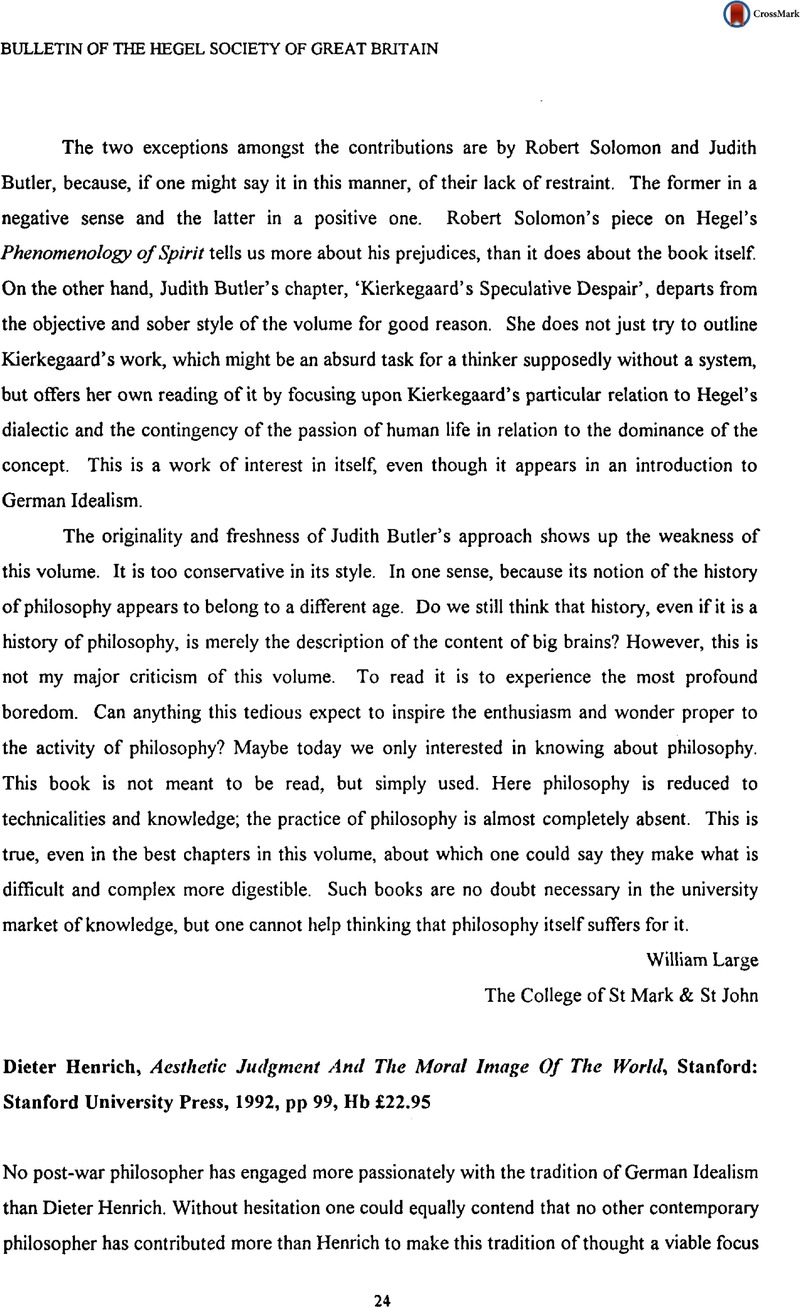No CrossRef data available.
Published online by Cambridge University Press: 23 June 2015

1 For the notion of philosophy as integration and critique, see Henrich, D, Flucht Linien, Suhrkamp: Frankfurt a m, 1982, pp 125–134 Google Scholar.
2 For a detailed account of the place of self-consciousness in Kant's critical philosophy, see Henrich, D, Identität und Objektivität, Carl Winter Verlag: Heidelberg, 1976 Google Scholar; “The Identity of the Subject in Kant's Transcendental Deduction”, in Shaper, /Vossenkuhl, eds: Reading Kant, Basil Blackwell: Oxford, 1989 Google Scholar.
3 Kant, , Critique of Judgment (1790)Google Scholar. Translated by W S Pluhar, Hackett Publishing Company: Indianapolis, 1987, p 15.
4 This was also certainly Kant's view. See Kant (1790), and in particular sections 9 and 38.
5 The systematic relation of early romaticism, and Hölderlin in particular, to Kant's third Critique is explored by Henrich, in his Der Grund im Bewusstsein, Klett-Cotta: Stuttgart, 1992 Google Scholar.
6 Henrich has argued this point more extensively, formulated as a critique of Habermas, Jürgen, in his Konzepte. Suhrkamp: Frankfurt a m, 1987, p 11 ffGoogle Scholar.